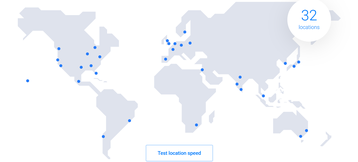Cloud hosting firm Vultr has launched a new sovereign and private cloud offering.
Available from April 10, the Vultr Sovereign Cloud and Private Cloud is a response to the increased importance of digital sovereignty, and the need to reduce reliance on hyperscalers.
The new cloud offering shortly follows the release of Vultr Cloud Inference, which enables customers to deploy AI models and inference capabilities via Vultr's infrastructure, which spans 32 data center locations across six continents.
The combination with Vultr's sovereign cloud offering will enable governments, research institutions, and enterprises to ensure AI data is bound by local data sovereignty, data residency, and privacy regulations.
To achieve this, Vultr has joined forces with local telecommunications providers, including Singtel, and other partners and governments around the world to build and deploy clouds managed locally in any region.
Customers have technological independence via a dedicated control plane that is completely untethered from the central control plane that handles resources across Vultr's data center portfolio. Vultr Sovereign Cloud and Private Cloud are also managed exclusively by nationals of the host country, resulting in an audit trail that complies with the highest standards of national security and operational integrity
“To address the growing need for countries to control their own data, and to reduce their reliance on a small number of large global tech companies, Vultr will now deploy sovereign clouds on demand for national governments around the world,” said J.J. Kardwell, CEO of Vultr’s parent company, Constant. “We are actively working with government bodies, local telecommunications companies, and other in-country partners to provide Vultr Sovereign Cloud and Private Cloud solutions globally, paving the way for customers to deliver fully compliant AI innovation at scale.”
In European countries, there are currently concerns surrounding housing workloads in non-sovereign cloud regions. In response, several cloud providers have developed sovereign cloud offerings. Google and Microsoft have both taken the approach of forming a joint venture with local companies.
In France, Google joined up with Thales to create a compliant company, and Microsoft teamed up with Capgemini and Orange. Google also took a similar approach in Germany with T-Systems, and in Belgium with Proximus.
Oracle (OCI) has two sovereign cloud regions in Europe located in Spain and Germany. In November, the EU Commission selected OCI for a six-year agreement in which EU institutions, bodies, and agencies would use its cloud computing services.
Microsoft Cloud for Sovereignty launched in December 2023 and is available across all Azure regions, and AWS is also planning sovereign cloud regions in Europe, with the first to be located in Germany.







